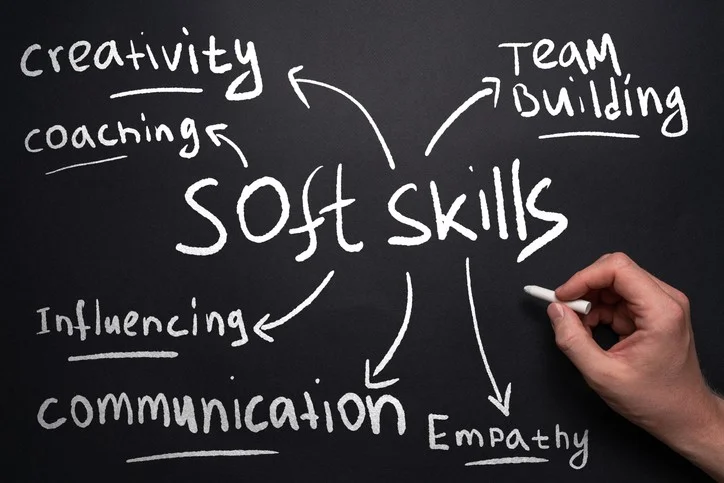Soft Skills: The Foundation of a Better Society

May 24, 2024 - by sjndigitals Education
In today’s fast-paced and competitive world, the importance of soft skills cannot be overstated. While traditional education focuses on academic knowledge and technical skills, it is the development of soft skills that genuinely sets individuals apart. Contrary to popular belief, soft skills are crucial for college or university students and even more essential for school-going students. They lay the foundation for a better society by nurturing well-rounded individuals who can effectively communicate, collaborate, and adapt to the challenges of the modern world.
The Power of Soft Skills
Soft skills, often called people or interpersonal skills, encompass many personal attributes and abilities. They include communication skills, teamwork, problem-solving, critical thinking, adaptability, leadership, and emotional intelligence. While hard skills are necessary for performing specific tasks, applying soft skills empowers individuals to excel in any field or endeavour.
Communication Skills: Bridging the Gap
Effective communication is at the heart of every successful classroom, workplace, or personal interaction. School-going students who develop strong communication skills gain a distinct advantage early on. They can express their thoughts and ideas, listen attentively, and engage in meaningful conversations. These skills enable them to build relationships, resolve conflicts, and collaborate with others, setting them on a path towards success.
Problem-Solving and Critical Thinking: Empowering Young Minds
Analyzing, evaluating, and solving problems is a critical skill beyond academic excellence. School-going students who develop strong problem-solving and critical-thinking skills become independent and resourceful individuals. They learn to approach challenges with a solution-oriented mindset, identifying multiple perspectives and evaluating options before making informed decisions. These skills enhance their academic performance, prepare them to overcome obstacles and make valuable contributions to society.
Teamwork and Collaboration: Strength in Unity
In an interconnected world, the ability to work collaboratively is essential. School-going students who actively engage in teamwork develop valuable skills such as leadership, cooperation, empathy, and compromise. They learn to appreciate diverse perspectives, leverage individual strengths, and contribute meaningfully to collective goals. These experiences foster a sense of unity and camaraderie, preparing them for future endeavours in higher education and the professional world.
Adaptability and Resilience: Thriving in Change
In today’s rapidly evolving landscape, adaptability is critical. School-going students who cultivate adaptability and resilience become better equipped to navigate uncertainties and embrace change. They learn to consider challenges as opportunities for growth, demonstrate flexibility, and quickly adjust to new circumstances. These skills instil confidence and self-assurance, enabling them to flourish academically and professionally in an ever-changing world.
Emotional Intelligence: Building Empathy and Understanding
Empathy and understanding are integral components of a harmonious society. School-going students who develop emotional intelligence learn to recognize and manage their emotions while empathizing. They become skilled at building positive relationships, resolving conflicts peacefully, and fostering inclusivity. Emotional intelligence equips them to navigate social complexities and contribute positively to their communities, improving the world.
Soft Skills: A Lifelong Investment
While college and university education often emphasize technical skills, the foundation for soft skills is laid during the formative years of schooling. Investing in developing soft skills for school-going students not only enhances their educational experience but also prepares them for future challenges. These skills provide a competitive edge, enabling them to excel in their fields and contribute meaningfully to society.
In conclusion, soft skills are more critical for school-going students than college or university students. They lay the groundwork for a better society by nurturing individuals with excellent communication skills, problem-solving abilities, teamwork and collaboration aptitude, adaptability, and emotional intelligence. By equipping school-going students with these vital skills, we empower them to excel academically, thrive personally, and positively impact the world.